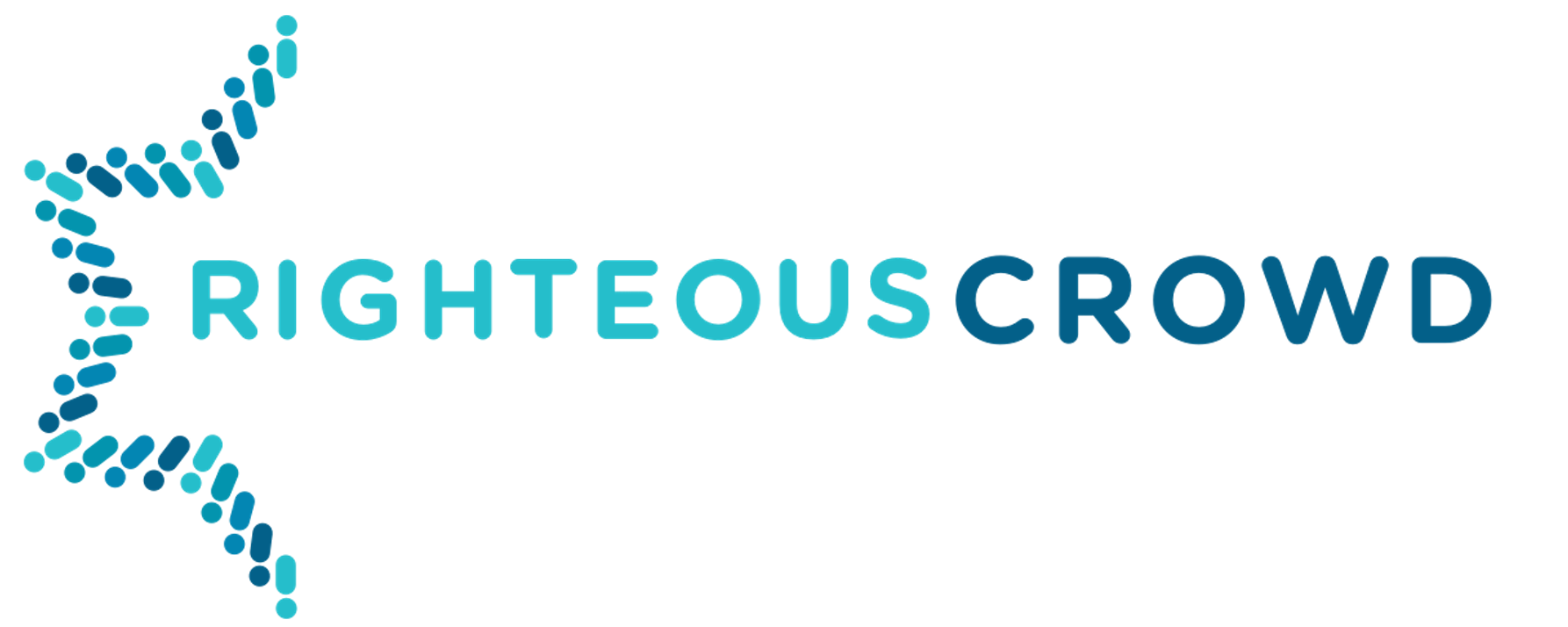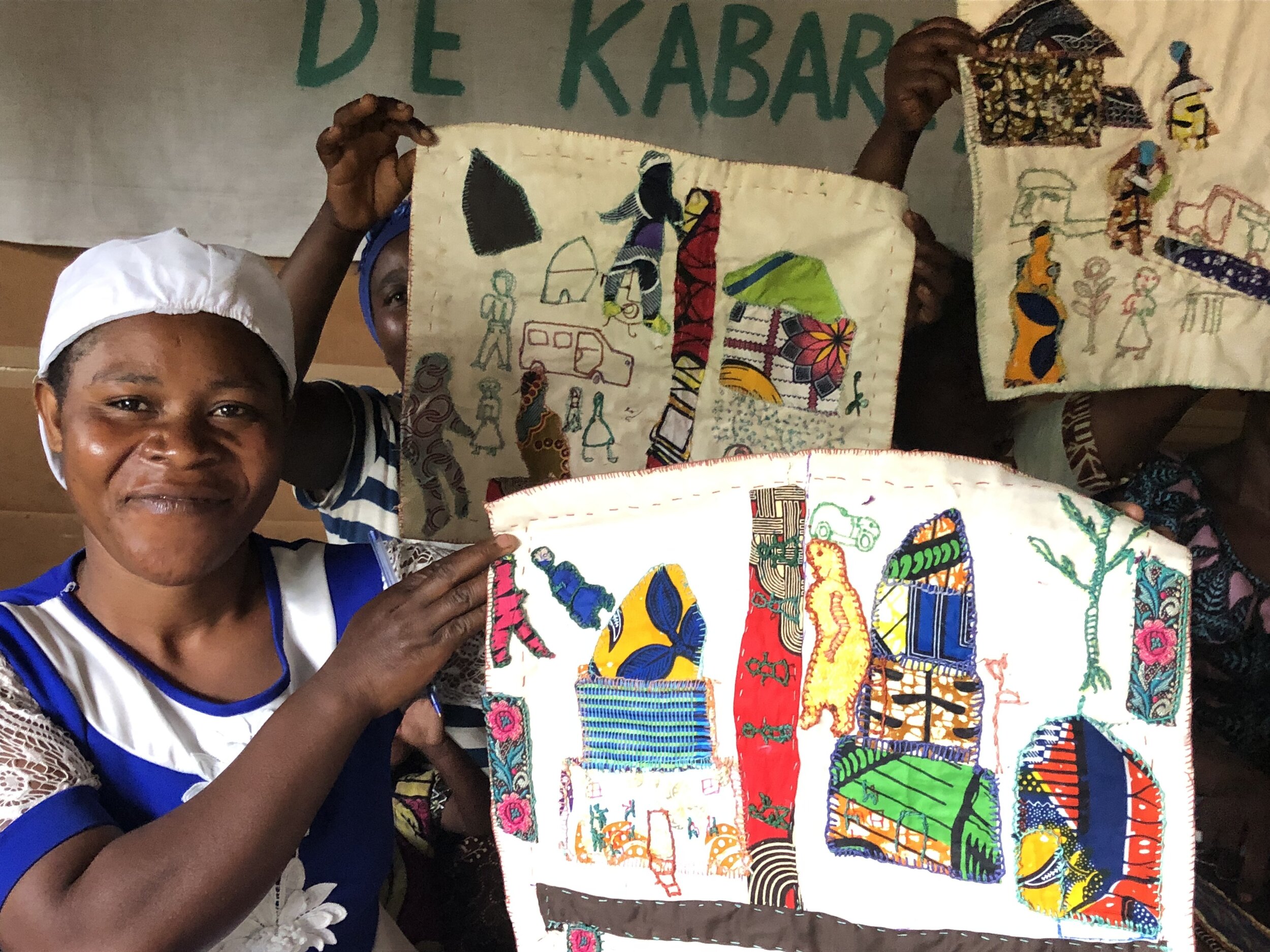Common Threads Project on Righteous Crowd this Week!
In a safe and supportive environment, women of sexual and gender-based violence create story cloths to depict experiences that may be hard to express in words. This opens the door for a transformative trauma treatment.
Common Threads Project
From Victims to Survivors to Agents of Change
This week’s Torah portion, Vayeshev, tells the famous story of Jacob giving his son, Joseph, a coat of many colors. Inspired by the artistry of the coat, we are supporting an organization that brings together survivors of sexual trauma to create story cloths that depict experiences which may be hard to express in words. The organization, Common Threads Project, has developed a unique recovery program and has helped 300 women to date. Common Threads Project envisions a world in which all survivors of sexual and gender based violence have the opportunity to receive a culturally responsive, survivor-centered intervention for deep and lasting psychological recovery.
Thank you to Maryland-based Righteous Crowd member Sandy Perlstein for suggesting this week’s organization!
Read our interview below with Rachel A. Cohen, Founder and Executive Director of Common Threads Project.
Why did you decide to start Common Threads Project?
Rates of sexual violence, especially in contexts of armed conflict, are at epidemic levels. Survivors deserve a real opportunity for comprehensive, effective and lasting recovery from the hideous atrocities they have endured. This is rarely, if ever, available to them. Inspired by a widespread ancient practice for coping with adversity and informed by current neuroscience, Common Threads Project developed a unique, culturally-responsive and transformative group treatment model. We partner with local organizations to train and mentor local clinicians to adapt and implement the approach in their communities. Sites have been established in Ecuador, Nepal, Bosnia, and eastern Democratic Republic of Congo. Preliminary research studies demonstrate that the intervention not only significantly reduces mental health symptoms such as depression and PTSD, but also helps women transform stigma and shame into dignity and pride, move from isolation into connection and solidarity, reclaim voice and agency, and restore a sense of hope for the future. We must do whatever we can to support women as they make their way from victims to survivors and from survivors to agents of change.
Who or what has inspired you in the work that you are doing?
In many diverse cultures and throughout history, women surviving adversity have gathered together to support one another and to sew their 'unspeakable' experiences into narrative textiles (see Common Threads Project). I learned about this phenomenon through the extraordinary work of a Holocaust survivor and textile artist, Esther Neisenthal Krinitz. Emotional safety and personal disclosure are fostered when the hands are busy and there is no demand for eye-contact. Creating images allows for unmediated self-expression. Hand sewing is calming, rhythmic, and meditative, an activity that promotes self-regulation when discussing overwhelming experiences. It may also foster a sense of mastery so needed by those who have been subjected to violence. The experience of producing an external representation of one’s internal pain and making something beautiful of a horrific experience can be transformative. For Common Threads, this ancient practice opens the door for an evidence-based comprehensive program of recovery.
This is how we infuse core Jewish values into the work of Common Threads Project:
Chesed (lovingkindness) and Rahamim (compassion): guides our approach to healing, empathy, and caring for survivors
Tikkun Olam (repair of the world--social justice): the imperative to correct problems in the world beyond our own community
Tikkun HaLev (repair of the heart--healing): healing of the psyche is needed for those who have suffered brutality
Kavod (respect for the dignity of all): beneficiaries must be treated with complete respect, interventions must be culturally responsive
Kehillah (importance of community): a group intervention builds solidarity and strength, and an antidote to stigma and shame
Lo Ta'amod (do not stand idly by injustice): where oppression is most brutal, we work to improve conditions
Ahavat Ger (love of the stranger/the other/the displaced): focus on displaced individuals and marginalized populations
Shalom Bayit (household peace): efforts to reduce domestic violence and prevent trauma transmission into the next generation
What’s a story about Common Threads Project that is meaningful to you?
I have seen how well women involved in our programs integrate the skills they learn for lasting change. This was clear when, during the 2015 earthquakes in Nepal, participants in our circles began to spontaneously teach their neighbors (living alongside them in the street) ways to cope with extreme stress that they had learned in our program. Soon, these participants began to help the clinical staff co-facilitate subsequent healing circles. With training and mentoring, our Nepali clinical team also grew in their expertise and began to train other clinicians in the region. With adaptation, they have made the Common Threads approach their own, and it is now called by it's Nepali name: Sajha Dhago.
What has surprised you about Common Threads Project?
What I hadn't expected in my work with trauma survivors in places of armed conflict is that the women we see are capable of restoring pleasure and vibrancy in their lives, despite what they have endured. In order to promote group cohesion, emotional safety, and help bring survivors out of a 'frozen body state,' (in addition to many more serious activities) we play games, do movement exercises, laugh together. I had expected that the work might be depressing--but it can be quite inspiring and even joyful!
What's the best part of your job and why?
The best part of my job is working with courageous survivors, and dedicated local clinicians in the field. Their resilience and perseverance is breathtaking! I am grateful for how warmly they welcome me into their lives. The human connection we make crosses cultural, racial, religious, and class lines in a way that I find deeply moving.
What are some non-monetary ways for others to get involved?
Follow us on social media, spread the word about our work, help us connect to relevant foundations and sources of funding, donate particular art and sewing materials.
To learn more about Common Threads Project click here

